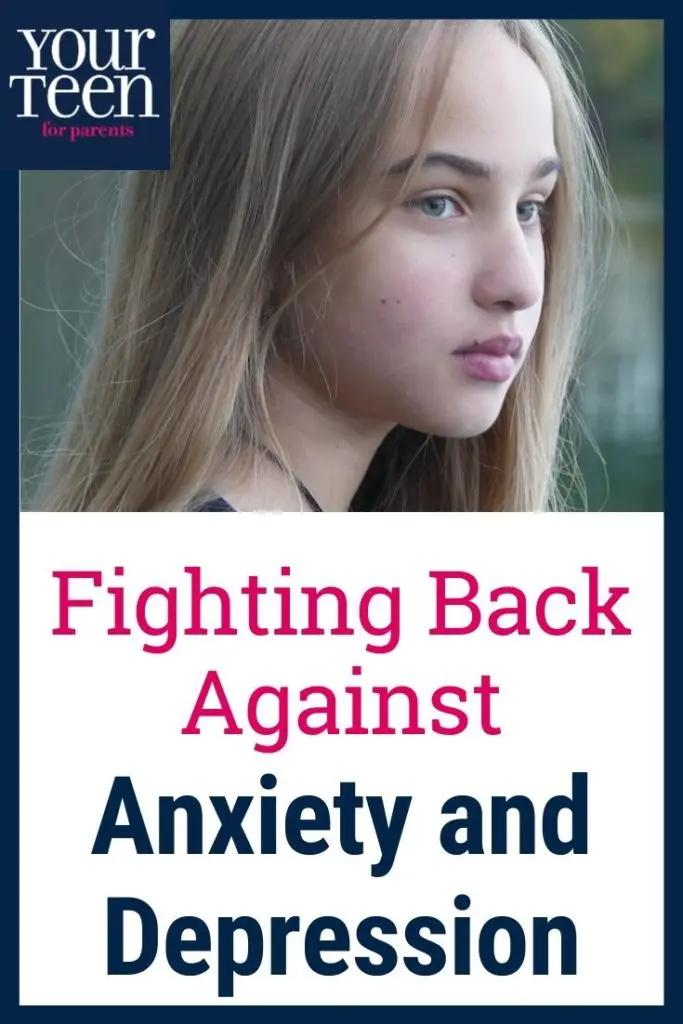There’s a lot of conversation going on about the rise in anxiety and depression in high school and college-aged kids. According to Dr. Carol Landau, clinical professor of psychiatry and Human Behavior at Brown University’s School of Medicine and the author of the newly released, Mood Prep 101: A Parent’s Guide to Preventing Depression and Anxiety in College-Bound Teens, before COVID, we knew there were epidemic levels of anxiety and depression in young people And then came COVID. The most recent research suggests that at least 40% of teens are struggling seriously with anxiety and depression.
Landau offers several strategies for parents and adolescents for how to manage their moods and as well as manage stress, anxiety, and depression.
Coping Strategies for Depression and Anxiety
1. Distress Tolerance
One of the big skills that college students seem to be lacking distress tolerance, something we could all use now. So many parents will rush in to solve their child’s problem or invalidate it by saying something like “Oh that’s not so bad.” You want to validate your child’s feelings and give them the message that this will pass or distract them and get them away from the ruminative feeling – music, dance, breathing. I’m a big fan of meditation for all ages.
A lot of us are kind of overwhelmed. But parents can still have an authentic conversation especially with teens because they can see through hypocrisy or minimizing so well. Say, “These are really tough times. I’m not so great at it, but these are things we can work on together.” I have a chapter in my book on self-reflection. We all have blind spots and triggers and it’s best to know what they are so we can work on them ourselves.
2. Strong family foundation
We need to value the power of the family. No matter what happens, human beings can endure a lot as long as they’re not alone. This is a terrible time, but we’re going to get through it together. Family can look a lot of different ways. The most important thing is commitment to the long term and this feeling that we have your back.
3. Positive framing
As an example, families are overwhelmed by these different models of school. But if you can find the positives, everyone benefits. “Virtual learning isn’t so bad because we can provide you some support and you’ll be more independent going forward.” For college, “This isn’t a great way to start but you’ve worked too hard and I know you’ll make it and get up and running.” You can empathize and validate first, but if you know your child’s strengths and weaknesses, you can acknowledge them and recognize that they can get through it.
4. Family communication
As a parent you can love your child dearly and still make mistakes. If we focus on communication, your kid will still know that you’re trying. Be as direct as you can. Try to be assertive and state your needs inside the family as much as possible.
There’s no plus side to the pandemic but there’s a lot of research that we have – like how eating together is good for the family. We certainly are able to do that now. It’s a time when the family knows they’re going to get together. Good communication involves both listening and sitting with some silence and maybe even some anxiety. Just try and breathe through it.
5. Adaptability
Be prepared for change. Right when you figure out how to parent a sixth-grader, they move on to the next grade, and we have to change with them. All of these skills are foundational and can always be used. Recognize that things will change and kids will need more independence as they get older.
6. Agency
Let your child explore their interests. This is related to passion and self-efficacy. Nurture what your child loves and then they feel like they can do this and they can take that feeling and apply it to other areas. You want them to follow what their interests are to the extent that they can.
7. Self-care
Take care of yourself. There will be no blame here. We want to reflect on what we’ve done and how we can do better, but we have to give ourselves a break especially in light of how many perfectionist tendencies we have. Once parenting became a verb, we were in trouble.






